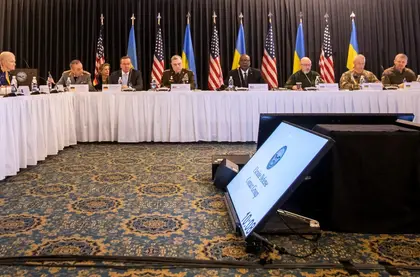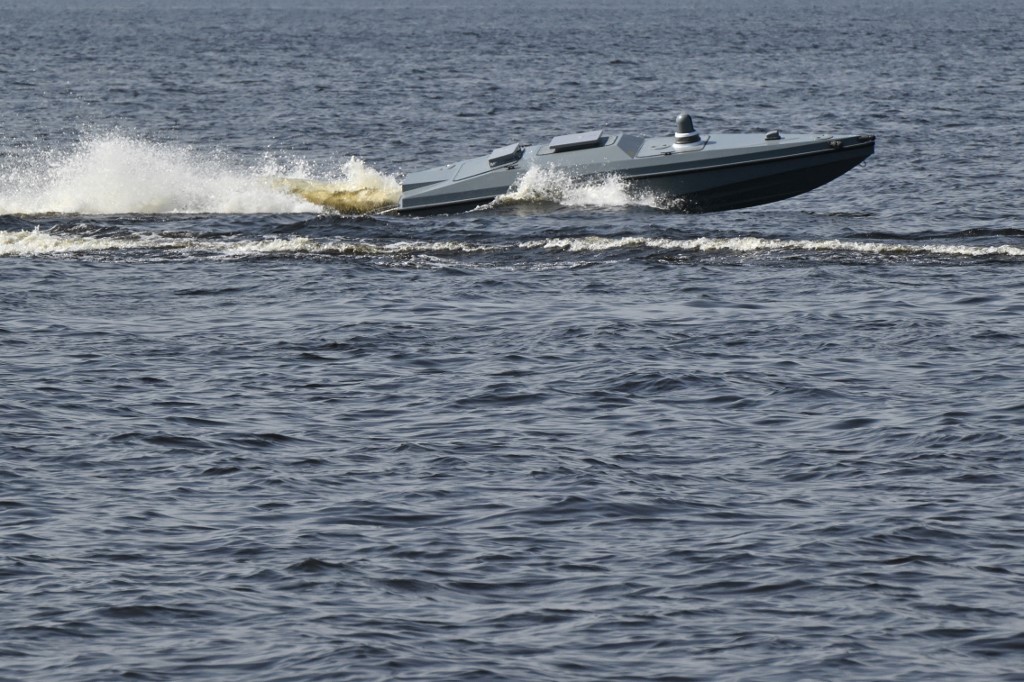The United States and NATO said Friday they were confident Ukraine could regain ground in a much-anticipated counter-offensive, as they vowed unwavering support for Kyiv at a key meeting in Germany.
Here are four key questions and answers about the day's events.
JOIN US ON TELEGRAM
Follow our coverage of the war on the @Kyivpost_official.
1. What is Ramstein anyway?
It’s obviously a US Air Force base in Germany. It’s also the name given to the Ukraine Defense Contact Group. That is an alliance of 54 countries, including all 30 NATO members and 24 additional countries. Through monthly meetings at Ramstein or virtually, the group’s job is to coordinate ongoing donation of military aid to Ukraine.
Today’s meeting marks the first anniversary of the Ramstein format.
2. What’s this meeting produced so far?
Ukrainian soldiers will be trained on US Abrams tanks from May, reports Associated Press.
Thirty one Abrams tanks will be in Germany by the end of May and then Ukrainian forces will shortly thereafter start 10 weeks of training, AP reports.
However, this lot of training Abrams are not bound for Ukraine. Instead, 31 M1A1 battle tanks are currently being refurbished in the US, and those will go to the frontlines when they are ready.
3. What does Ukraine want from the meeting?

Putin Orders AI Cooperation With China
Prior to the Ramstein meeting, Ukraine’s Minister for Defense Oleksi Reznikov told Radio Liberty that he hopes “to get an assurance that Ukraine will be further supported.”
He said that Ukraine’s military aid priorities are additional air defense systems, more artillery shells, and additional training of Ukrainian forces.
Interestingly, there was no suggestion of jet fighters during the day from the Ukrainian side though they were still on Kyiv's "wish list", Reznikov insisted after the talks.
For his part, US Secretary of Defense Lloyd Austin said this after a one-on-one with Reznikov prior to the full Ramstein discussion:
“Over the last year, the members of the Ramstein Group have given Ukraine huge potential. We will continue to support [the Ukrainians] however much and however long that will be needed,” he said.
4. Is everything smooth sailing at Ramstein?
Today’s meeting also comes during an on-going dispute between NATO allies about who is to implement a recent EU decision to buy / produce artillery ammunition for Ukraine.
Of the delay in ammunition supply caused by the dispute – primarily between France and Poland – about the procurement and production process. France is seeking to limit recently allocated funds to EU nations, effectively blocking US and UK suppliers. In response, Ukraine’s Foreign Minister tweeted a stinging rebuke.
“For Ukraine, the cost of inaction is measured in human lives,” Kuleba tweeted
The inability of the EU to implement its own decision on the joint procurement of ammunition for Ukraine is frustrating. This is a test of whether the EU has strategic autonomy in making new crucial security decisions. For Ukraine, the cost of inaction is measured in human lives.
— Dmytro Kuleba (@DmytroKuleba) April 20, 2023
France apparently wants the supply to come only from EU member states, while Poland apparently believes that other countries should be eligible to supply the shells.
5. What was the verdict at the end of the day?
As noted at the beginning, Ukraine's western allies said they were confident Kyiv could regain ground in a much-anticipated counter-offensive
At the talks hosted by the United States, representatives from around 50 nations went "through all the different capabilities, systems, supplies that the Ukrainians need", NATO chief Jens Stoltenberg said.
"I'm confident that they will now be in a position to be able to liberate even more land," the NATO chief said.
US Defence Secretary Lloyd Austin, who hosted the Ramstein talks, also assessed that efforts by allies to bolster Kyiv "will put Ukraine's forces in a position to continue to succeed on the battlefield".
Other points of emphasis for the talks included supplying Ukraine with desperately needed ammunition and maintenance for equipment already deployed.
"This is now a battle of attrition, and a battle of attrition becomes a war of logistics," Stoltenberg said, adding, "maybe it's also a bit more boring but the logistics is extremely important".
You can also highlight the text and press Ctrl + Enter






